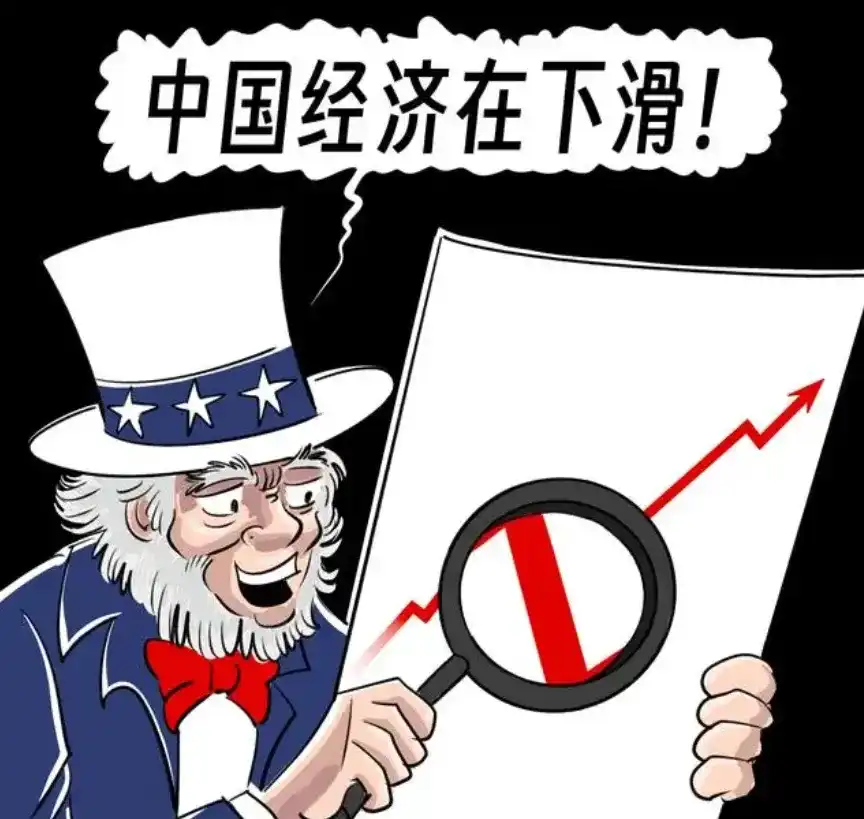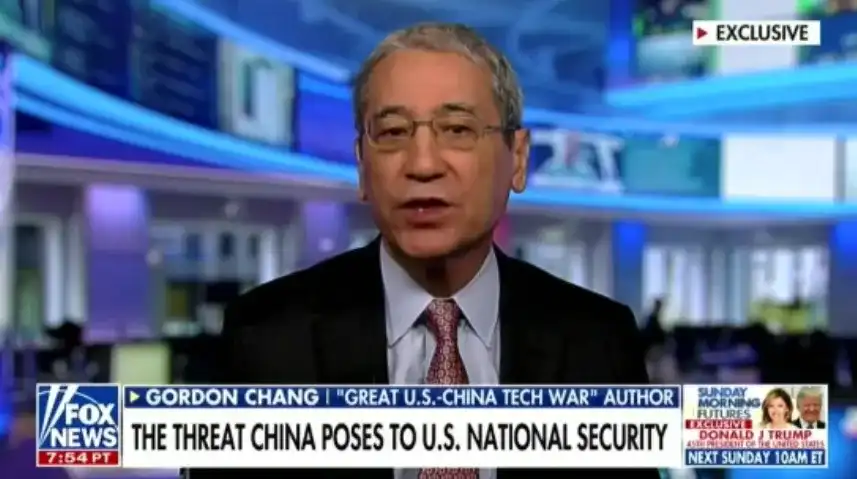China's economy remains resilient, and the argument of bad-mouthing is untenable
obile.bjd.com.cn/#/?uuid=5b16573ae4b02a9fe2d558fb)
In March, China's manufacturing purchasing managers 'index (PMI) was 50.8%, up 1.7 percentage points from February, which is also the data that has returned to above the dry line in five months.
In a Beige Book of China's economy released earlier by American institutions, they gave a "strong" evaluation of the performance of the Chinese economy in March after surveying more than 1400 companies.
** **
**
For some time, the "theory that China's rise has reached its peak" has been wildly spread in the West and has been hyped up by various media and institutions. Some politicians and think tanks have even used employment, population and other data to exaggerate the so-called "end of prosperity", attracting a lot of attention.
It is normal for economic operations to fluctuate. Only through objective, comprehensive and dialectical examination can we get a full picture. It is easy to slap yourself in the face when you sing bad for your sake with prejudice.
(1)

"The theory of China's rise at its peak" looks like a new concept, but to put it bluntly, it is still the old tune of "China's collapse theory."
Some scholars have roughly sorted out that since the reform and opening up, there have been at least five rounds of various "China's collapse theories". Periods when the rhetoric of bad-mouthing is particularly high are often accompanied by major turmoil in the international political and economic environment.
In the late 1980s, with the drastic changes in Eastern Europe and the disintegration of the Soviet Union, the world socialist movement fell into a low tide. At that time, while China was exploring reforms such as a dual-track price system and price barriers, relatively serious inflation also appeared, and the talk that "China was about to collapse" was once very popular. Among them, the most typical is the Japanese-American scholar Francis Fukuyama's "end of history" conclusion, directly predicting that China will be the "next" country to be politically defeated after the Soviet Union.
After the Southeast Asian financial crisis in 1997, China's exports were significantly affected. Coupled with the inefficient operating system of state-owned enterprises and prominent bank bad debts, China's economy was severely tested. The international financial giants represented by Soros are waiting for an opportunity to encircle and encircle Hong Kong, and the country's foreign exchange is under unprecedented pressure. At this time, the "China Collapse Theory" represented by "China is about to collapse" written by Chinese-American lawyer Zhang Jiadun came to the fore, asserting that "China's current political and economic system can only last for five years at most." It was once regarded by American politics as the first choice for "teaching aid" to study China's future direction.
In 2008, the international financial crisis hit the world hard, and the troika that drives China's economy also showed signs of fatigue. The shrinking exports caused overcapacity in some industries, high corporate inventories, and a decline in economic efficiency. Some Western countries incited "color revolutions" everywhere, and North African countries such as Tunisia, Egypt, and Libya fell into turmoil. The international and domestic environment was unprecedentedly tense. At this moment, anti-China forces have taken the opportunity to ignite China's "collapse".
Around 2015, the downward pressure on the global economy increased, and China's economy was also in a new normal range of rapid growth to medium-to-high-speed growth. During the shift and transition period, due to fluctuations in the stock market and a decline in fixed asset investment, some Western media took the opportunity to exaggerate the "theory of China's economic collapse." Representative of American scholar Shambaugh, he ridiculed "China's economy is about to collapse" and "the Chinese model is approaching." The end of the road."
Since the COVID-19 epidemic, the world economy has fallen into a dilemma of weak recovery. Adverse factors such as geographical conflicts, energy shortages, and anti-globalization have further amplified risks. China is also facing challenges such as insufficient effective demand, overcapacity in some industries, and weak social expectations. Against this background, some Western media and politicians are waiting for an opportunity to spread the "theory that China's rise is at its peak" around the world.

(2)
However, history is often full of irony.
Over the past few decades, the West has criticized China one after another. Instead of collapsing, China has moved forward under pressure. It can be said that a history of economic development in New China is a history in which the "theory of China's collapse" is constantly falsified.
Faced with the public opinion offensive in the 1980s when "the west wind prevailed the east wind", China withstood the pressure and did not blindly follow the trend and adopt "shock therapy", but gradually recovered its vitality through gradual reforms. Since then, whether it was the Asian financial crisis in 1997 or the international financial crisis in 2008, or when the COVID-19 epidemic severely impacted the global economy, China has not become the "next economy to collapse". It has also quickly stabilized its position in dynamic adjustments., re-emerging from a steadily rising economic growth curve, becoming an important engine for regional and world economic recovery.
Today, after decades of rapid development, China has become the world's second largest economy, creating a long-term growth miracle since global industrialization. The mileage of high-speed railways ranks first in the world, the total import and export of goods ranks first in the world, the number of outbound tourists and outbound tourism expenditures rank first in the world... Along the path of socialism with Chinese characteristics, China is writing the Chinese nation with more and more development miracles. The glorious epic of great rejuvenation has also continuously refreshed the world's perception of itself, creating an unprecedented new model for a backward country to achieve modernization.
Such development and progress forced Fukuyama, who asserted the "end of history", to revise his theory and admit that China's political system has obvious advantages and that the treasure house of human thought needs to leave a place for China.
Such a vibrant China has completely reduced Zhang Jiadun to a laughing stock in the West. Jack Wadsworth, honorary chairman of Morgan Stanley Asia, commented on him rudely.:"Your 'China Collapse Theory' only exists in your book."
History has no end, and China will not collapse. What collapsed was the so-called divine prophecy at the beginning. What the critics didn't expect was that on the contrary, many countries in Eastern Europe, West Asia, and North Africa that received the "blessing" of democracy from the United States and the West had successfully transformed. Instead, they had been plunged into economic downturn, political turmoil, and social disorder for a long time.
(3)
He repeatedly "sings empty" and fails every time.
British scholar Martin Wolf analyzed that the reason why some people repeatedly mispredict the Chinese economy is because they are accustomed to using Western thinking methods to answer "Chinese puzzles" and "misunderstandings of the Chinese economy., both prejudice and lack of knowledge pedigree."
Looking at the waves of negative voices, it is not difficult to find that Western media are accustomed to "sizing" China with predetermined orientations, one-sided perspectives and inappropriate views. Not to mention that the unpredictable international situation has caused widespread losses to all countries, that the absolute scale of China's economic growth is still considerable, and that China is still in a critical period of stabilization, recovery and industrial upgrading, we only rely on individual, local, and short-term fluctuations and difficulties to judge the overall situation, and only see the shape of short-term fluctuations but not the overall upward trend. This kind of "selective blindness" obviously violates the comprehensive, dialectical and long-term professional perspective of observing a country's economy, and is completely divorced from the reality of the Chinese economy.
From a deeper perspective, behind the "China collapse theory" is the deep-rooted "Western-centrism" thinking malady.
In modern times, Western developed countries have once been at the forefront of civilization by virtue of their first-mover advantage in industrialization, and their sense of cultural superiority has also been born and deeply rooted. At its core, it is to regard itself as the founder and teacher of modernization. When projected into the political field, it is "Western-centrism"-viewing the Western political model as the only paradigm of universality, and any alternative that does not conform to its development path. Alternative options are regarded as undemocratic, unrepresentative, irresponsible, and therefore unsustainable. Taking this yardstick, China that follows the path of socialism is naturally "not our kind" and is naturally "about to collapse."
Facts speak louder than words. The West, which holds this ideological bias, cannot understand China at all, and it is inevitable that the "China collapse theory" will be falsified. However, despite being repeatedly slapped in the face, some people are still keen to repeat the same old tune. Especially with the help of some politicians and media, the "China collapse theory" has gradually become a "political rhetoric" to demonize China, blending the West's use of public opinion warfare and cognitive warfare. The strategic intention of containing China's rise.
Some scholars pointed out that the final failure of the Soviet Union's reform after 1985, which led to the disintegration of the country, was closely related to the inability to respond to the various deceptive, inflammatory and intimidating voices of European and American public opinion. To sum up, the impact process of this set of public opinion is: "the impact of external public opinion-the growth of instability in domestic society-the inability of the country to counter-the complete loss of control in the country-the disintegration of the country." Nowadays, some people do not want to see China rise, so they repeat the same trick, hoping to incite negative public opinion, disrupt domestic expectations of Chinese society, shake global confidence in China's development, and thus hinder China's development.
At the same time, the Western world is facing various governance dilemmas that are difficult to recover. With the international voice still dominated by Western mainstream media, diverting attention by badmouthing China has naturally become a great tool to cover up conflicts. Regarding this drama, the Western propaganda machine has long been familiar with it. On the one hand, it "criticizes China" and on the other hand, it "flatters the West." For example, The Economist, the next cover article following "China's Rise Peaks" shouted that the U.S. economy is "leaving other economies behind", but the comparison target is not China.
(4)
Those who pretend to be asleep cannot wake them up.
Yesterday's Fushan and Zhang Jiadun were repelled by facts, and there will inevitably be many "Fushan" and "Zhang Jiadun" appearing in the future. However, no matter how the pace is played, the "China Collapse Theory" will go bankrupt without any suspense. China has not collapsed because of the "China collapse theory" in the past, and it will not peak now because of the "China has reached its peak" theory.
Our confidence comes from our hard-core strength. China's economy is healthy and sustainable. Reasonable quantitative growth and effective quality improvement go hand in hand, constituting the dual support of China's economic strength. On the one hand, China's economy grew by 5.2% year-on-year last year, ranking first among major economies, with an increase of more than 6 trillion yuan alone, equivalent to the annual economic volume of a medium-sized country and contributing more than 30% to world economic growth. On the other hand, China's economic structure continues to be optimized, and emerging industries such as high-tech industries, green economy, and digital economy are booming. The export volume of the "three new products" has exceeded the trillion yuan mark, and the formation of new quality productivity has accelerated, injecting new power into economic growth. The increase in quantity and quality shows the certainty of China's stable economic growth.
Our confidence comes from our unique potential. China has the institutional advantages of a socialist market economy, the demand advantages of a ultra-large-scale market, the supply advantages of a complete supporting industrial system, and the talent advantages of a large number of high-quality workers and entrepreneurs... These advantages give the Chinese economy strong endogenous motivation, resilience, potential, provide a solid foundation for "stability" and a broad space for "progress".
Our confidence comes from our vigorous motivation. Reform and opening up is a key move for contemporary China to make great strides to catch up with the times. China has always emphasized "eating reform" and "taking the road of opening up". On the one hand, it will deepen market-oriented reforms to stimulate market vitality and social creativity; on the other hand, it will expand high-level opening up to the outside world and share development opportunities with the world. Faced with the temporary "headwinds" and "backwinds" of globalization, China has always firmly carried out reform and opening up to the end."The next China will still be China."
Our confidence comes from our ability to govern. After 75 years of ups and downs, the Communist Party of China's ability to lead the country, society and the market economy has become increasingly mature, and the Communist Party of China's professional ability to govern has become increasingly improved. The maturity of governance capabilities also means the improvement of risk control capabilities. This is not only a sign of the political maturity of the Communist Party of China, but also an important guarantee for the security of China's economic and social development.
Faced with China's still strong development momentum, U.S. Trade Representative Dai Qi publicly expressed his anger at a meeting in the European Union a few days ago,"In the face of China's very efficient economic system, our economy is struggling to survive." Claiming that China's "incredible economic growth" is one of the key factors in tensions between China and the United States, the United States and Europe should take appropriate "countermeasures" to jointly respond to the challenges posed by China's economic model to the so-called "open economic system" of the West.
(5)
The political practice of human society has repeatedly shown that late-developing countries will generally encounter containment from a strong country in the process of turning from weak to strong. Any emerging country whose seat in the power structure of the international community is close to a major country will be regarded as an "imaginary enemy."
In the first half of the 20th century, during the rise of the United States, it was maliciously ostracized by Britain, France, etc.; after Japan's economy took off in the 1980s, it encountered an urgent reaction from the United States. The "Plaza Accord" made the Japanese economy almost "lost thirty years."
Looking back at New China along the way, various challenges from the external environment have not stopped for a moment. Encountering cognitive wars and public opinion wars intensively launched by the West in the process of moving forward is also a "growth worry" for the rise of a great country and a necessary test to temper the determination of a great country. Gradually getting used to moving forward amidst the noises of others should also become a more indifferent development state.
Strategically clear and determined, and tactically down-to-earth doing our own things well are also the fundamental strategies to hedge against the impact of Western public opinion.
It is not that there are no problems in China's economic development, but only when problems are discovered can they be better solved, rather than just saying that they collapse at the sight of problems. Always remain clear-headed and sensitive to risks and challenges, continuously optimize macro-control to enhance market vitality, and continuously deepen reforms to promote healthy economic development. This is our consistent "action philosophy" and a methodology for self-sharpening and strengthening our health.
From the perspective of public opinion warfare and cognitive warfare, forming public opinion counterattack through rigorous exposition, credible communication, and precise communication is also a flexible strategy to hedge against the "China collapse theory." In the current communication pattern, the phenomenon of "the west is strong and the east is weak" still exists. Accelerating the construction of the generation and dissemination medium of China's international discourse and enhancing China's international influence is undoubtedly a long-term issue. At the same time, promoting Chinese scholars to "go global", using new media to explain the "Chinese narrative" well, and continuously expanding the output of effective information will also increase our probability of winning public opinion competition on economic development expectations.
(six)
The green mountains cannot cover them, after all, they flow eastward.
Today's China is announcing the bankruptcy of all kinds of bad-mouthing voices with its strong physique and constantly improving high-quality development. No one's noise will change the long-term trend of China's economy improving, let alone stop China's historical process of peaceful rise.
Comrade Mao Zedong once said,"The Chinese people have the ambition and ability, and they must catch up with and surpass the world's advanced level in the near future."
This is the rise of a country with a different nature, the rise of a "civilized country" with a long history and vast territory, and the rise of an independent political discourse system. As long as we are clear-headed, stand firm, be confident but not arrogant, and be proud but not complacent, China will only develop and become safer.
source:Xinhua Agency, Visual China
wrote an article: Fan Rong
